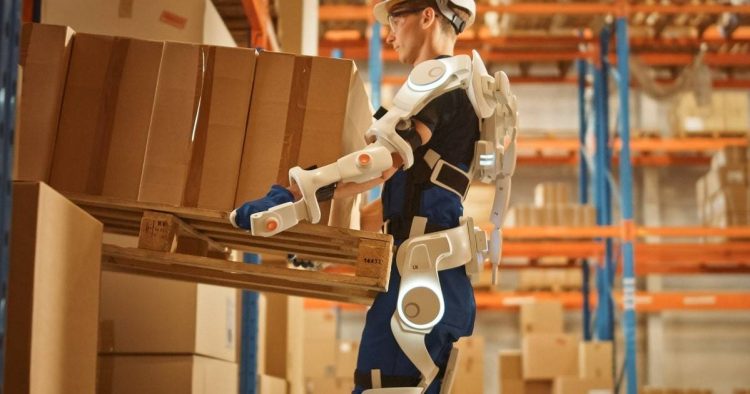The idea of becoming superhuman—of transcending our biological limitations through technology—is a dream that has fascinated humanity for centuries. From ancient myths of gods and heroes with extraordinary abilities to modern-day comic book characters like Iron Man, we’ve long imagined a future where the human body is enhanced by machines and devices. But now, in the 21st century, the dream of “bionically enhanced” humans is starting to become a reality.
Bionics, the integration of biological systems with electronic or mechanical devices, is at the forefront of this revolution. Through advancements in prosthetics, implants, neural interfaces, and exoskeletons, we are edging closer to a world where human capabilities can be amplified far beyond what nature intended. But are we really on the verge of creating superhumans? And if so, what does that mean for the future of humanity?
In this article, we’ll dive into the science behind bionics, the ethical implications of human enhancement, and the potential impacts of a future where the human body can be customized with machines.
The Rise of Bionics: A Brief History
Bionics has evolved from a niche medical field to a potential game-changer in human enhancement. Its roots can be traced back to the early 20th century when prosthetic limbs began to improve in functionality, allowing individuals with amputations to regain some semblance of normalcy in their daily lives. However, the field truly took off in the latter half of the 20th century with the advent of electronics, robotics, and advanced materials.
One of the first milestones in bionics was the development of the cochlear implant in the 1960s, a device that restored hearing to individuals with severe hearing loss. It was a breakthrough in integrating technology with the human body, and it set the stage for future innovations in human enhancement.
By the late 20th and early 21st centuries, advances in robotics and AI began to reshape the possibilities of bionics. Prosthetic limbs, once limited to simple, passive tools, were transformed into highly sophisticated devices controlled by the user’s thoughts. Brain-computer interfaces (BCIs) allowed individuals to control machines directly with their minds, and exoskeletons—wearable robotic suits—began to offer enhanced strength and mobility to people with disabilities or those seeking to augment their physical abilities.
As these technologies continue to advance, the line between human and machine becomes increasingly blurred. So, what exactly does it mean to be “superhuman,” and how close are we to achieving it?

Superhuman Strength: Exoskeletons and Powered Prosthetics
Imagine being able to lift cars, run faster than Olympic sprinters, or carry out physically demanding tasks without breaking a sweat. For decades, this level of physical capability existed only in the realm of fiction. But today, thanks to bionics, this future is becoming a reality.
Exoskeletons are wearable devices that augment the body’s natural movement by providing external support or power. These devices are already being used for medical purposes, such as helping individuals with spinal cord injuries regain some form of mobility. They are also being developed for military, industrial, and athletic applications, promising to increase human strength and endurance.
How Exoskeletons Work
Exoskeletons are typically made up of a combination of lightweight materials like carbon fiber and powered motors that assist the user’s movements. Some exoskeletons are controlled by the user’s movements, while others rely on neural interfaces to interpret signals from the brain. By reinforcing muscles and joints, exoskeletons can enable users to perform tasks that would otherwise be impossible.
The most famous exoskeleton to date is the ReWalk, a system that allows individuals with spinal cord injuries to stand and walk again. Although still a medical device, its potential for human enhancement cannot be understated. As technology advances, we might see exoskeletons that are lightweight enough for everyday use, allowing anyone to gain superhuman strength and endurance.
Brain-Computer Interfaces: Mind Over Matter
Brain-computer interfaces (BCIs) have the potential to take human capabilities to a whole new level. These devices allow for direct communication between the brain and external devices, bypassing the body’s natural motor pathways. BCIs have been used to help paralyzed individuals regain movement and even to enable people to control robotic arms or prosthetic limbs simply by thinking.
One of the most exciting aspects of BCIs is the possibility of direct control over technology. For instance, Elon Musk’s company, Neuralink, aims to develop a BCI that can enhance cognitive abilities, potentially allowing humans to interface with machines in ways previously only imagined in science fiction. Imagine being able to upload new knowledge directly into your brain, or communicate telepathically with others via neural networks. These are not merely speculative concepts but are becoming tangible goals for scientists and tech innovators.
Enhancing Cognitive Abilities
While much of the focus on BCIs has been on physical restoration, the future potential of these interfaces is much broader. With further advancements in brain mapping and neural networks, BCIs could allow us to enhance our cognitive abilities—improving memory, learning speed, and even problem-solving skills. This could open the door to a new era where humans no longer rely solely on their biological limitations for processing information.
The Ethical Implications of Mind Enhancement
The rise of brain-computer interfaces raises a host of ethical questions. If we can enhance human cognitive abilities, should we? What would happen if some people had access to cognitive enhancements while others did not? Would this create a new form of inequality, a “cognitive divide”?

As with all technological advancements, bionics and BCIs come with potential risks. From privacy concerns to the possibility of hacking neural systems, the implications of enhancing the mind are vast. However, if these challenges can be overcome, BCIs could revolutionize our relationship with both the physical and digital worlds.
Bionic Vision: Augmenting the Senses
When we think about superhuman abilities, we often imagine enhanced vision. Whether it’s night vision, telescopic sight, or the ability to see into different spectrums of light, bionics are starting to give us the ability to perceive the world in entirely new ways.
One of the most groundbreaking developments in bionic vision is the bionic eye, a device designed to restore sight to individuals with vision impairments. These devices work by bypassing damaged parts of the eye and directly stimulating the optic nerve or the brain’s visual cortex. While still in the early stages, bionic eyes hold the promise of giving people the ability to see again, potentially restoring full or partial vision to millions of people worldwide.
But bionic vision isn’t just about restoring lost sight—it’s also about enhancing it. Researchers are exploring the use of augmented reality (AR) in combination with bionic vision, allowing users to access information in real time through their visual field. Imagine walking down the street and having useful data—like directions, facial recognition, or real-time translations—appear directly in front of your eyes. With such technology, humans could gain an almost superhuman level of situational awareness.
Ethical and Social Considerations: The Superhuman Dilemma
While the possibility of becoming superhuman is exhilarating, it also raises significant ethical, philosophical, and social questions. If we can enhance human abilities beyond their natural limits, who gets access to these technologies? What are the potential consequences for those who cannot afford or are excluded from these enhancements? Could this lead to a new form of class division—between the “enhanced” and the “unmodified”?
The Concept of “Transhumanism”
Transhumanism is a movement that advocates for the use of technology to overcome human limitations. Proponents argue that by enhancing the human body and mind, we can create a better, more capable society. But critics worry that pushing for such enhancements could lead to a dehumanizing future, where the essence of being human is lost in the pursuit of perfection.
As bionics and other forms of human enhancement become more common, society will need to grapple with the implications of these technologies. Should there be limits on how far we can go in enhancing the human body? Can we create a world where everyone has equal access to these advancements, or will they remain privileges for the wealthy and powerful?
The Future of Bionics: A World of Possibilities
The future of bionics holds immense promise. As technology continues to advance, the possibilities for human enhancement seem endless. We could see humans with enhanced strength, speed, cognitive abilities, and even new sensory perceptions. The question is not whether these possibilities will become reality, but rather how we will navigate the ethical, social, and personal implications of becoming “superhuman.”
In the near future, bionics could transform everything from medicine to the workplace to the battlefield. It’s not hard to imagine a world where people can choose to augment themselves, creating a new era of human potential.










































